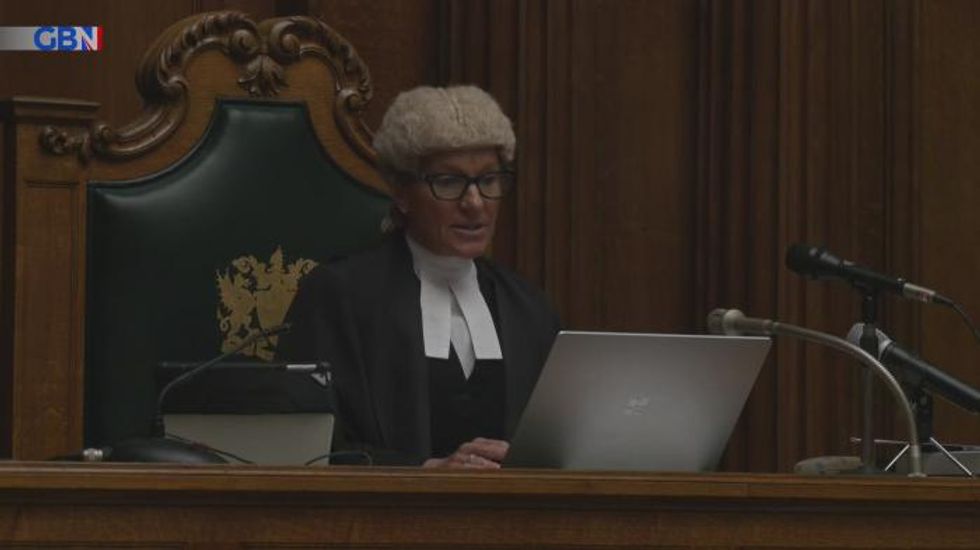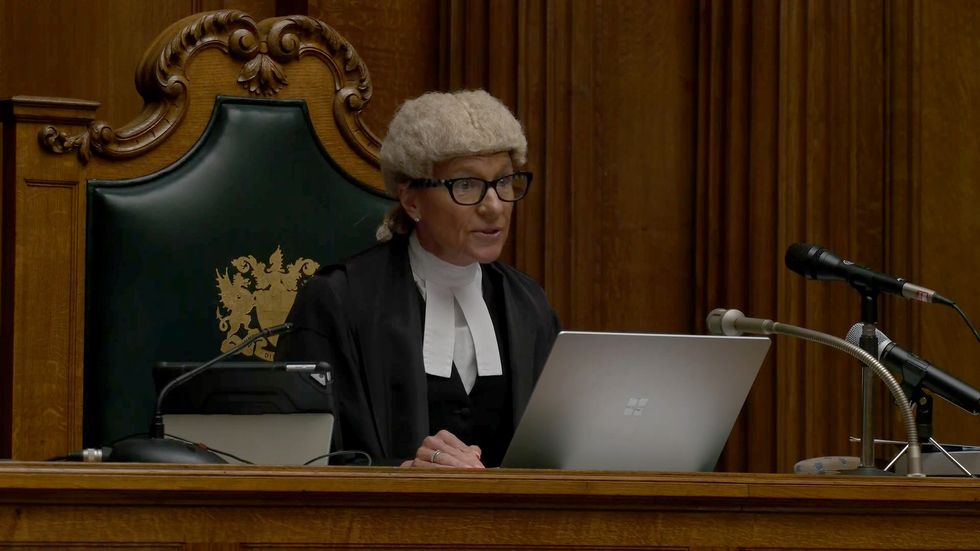Don't Miss
Most Read
Trending on GB News
This historic live broadcast of the first sentencing remarks in a criminal court in England and Wales provided the perfect platform for the judiciary to show the complex nature of the sentencing decisions they have to reach.
Although the killing of 74-year-old David Oliver was utterly horrific, the judge, Sarah Munro QC, had to weigh up far more than simply the brutality of the crime.
The victim’s 25-year-old grandson had lived a troubled life, to say the very least.
Ben Oliver had been physically abused by a violent step father and sexually abused by a neighbour.
His childhood traumas were, according to experts, a contributing factor to his own prolific offending behaviour, which saw him convicted of child sex offences, rape and assault.
Sarah Munro's sentencing remarks were broadcast live from the Old Bailey
PA Video/Cameras in Court
Coupled with underlying mental health issues, including autistic spectrum disorder, there were significant mitigating factors that the judge had to take into account when deciding what sentence to impose.
In allowing live television cameras into a criminal court, the judiciary hopes to shine a light on the complicated nature of sentencing offenders.
Judges, many lawyers and victim groups have been understandably cautious and at times reluctant to allow cameras in court.
No one involved in this country’s legal system wants to see an Americanisation of the courts which can lead to entire trials being televised and sometimes sensationalised.
And so this landmark development is a small step in providing coverage of the very end of the criminal trial process.
Undated handout photo issued by Metropolitan Police of Ben Oliver who has been jailed for life with a minimum term of 10 years and eight months for manslaughter
Metropolitan Police
The camera is very deliberately trained only on the judge. No shots of the defendant or anyone else involved in the case are allowed. But for all the restrictions, these sentencing remarks still provide a truly fascinating insight into what the judge has to weigh up.
In this case, Judge Sarah Munro QC decided that Ben Oliver was a continuing risk to the public.
The horrific and calculated nature of the offence meant she could consider a jail term in excess of 24 years.
But taking all of the mitigating factors into account, his troubled upbringing, his mental health and the fact he pleaded guilty at the earliest opportunity, she reduced that sentence to one of life in prison with a minimum term of more than ten years.
So Ben Oliver will eventually be able to apply for release from prison once that minimum term has been reached.
But even after release he will remain on licence for the rest of his life. Meaning that if he reoffends he can be immediately returned to prison.
Today’s live sentencing remarks are the first of many cases the public will now be able to hear, at least in part.
The Ministry of Justice and the Judiciary say they believe it is a very significant step forward in open justice.
It is unlikely to bring an end to the arguments over whether a sentence has been fair but it will at least give people a greater insight into how judges reach their decision.













